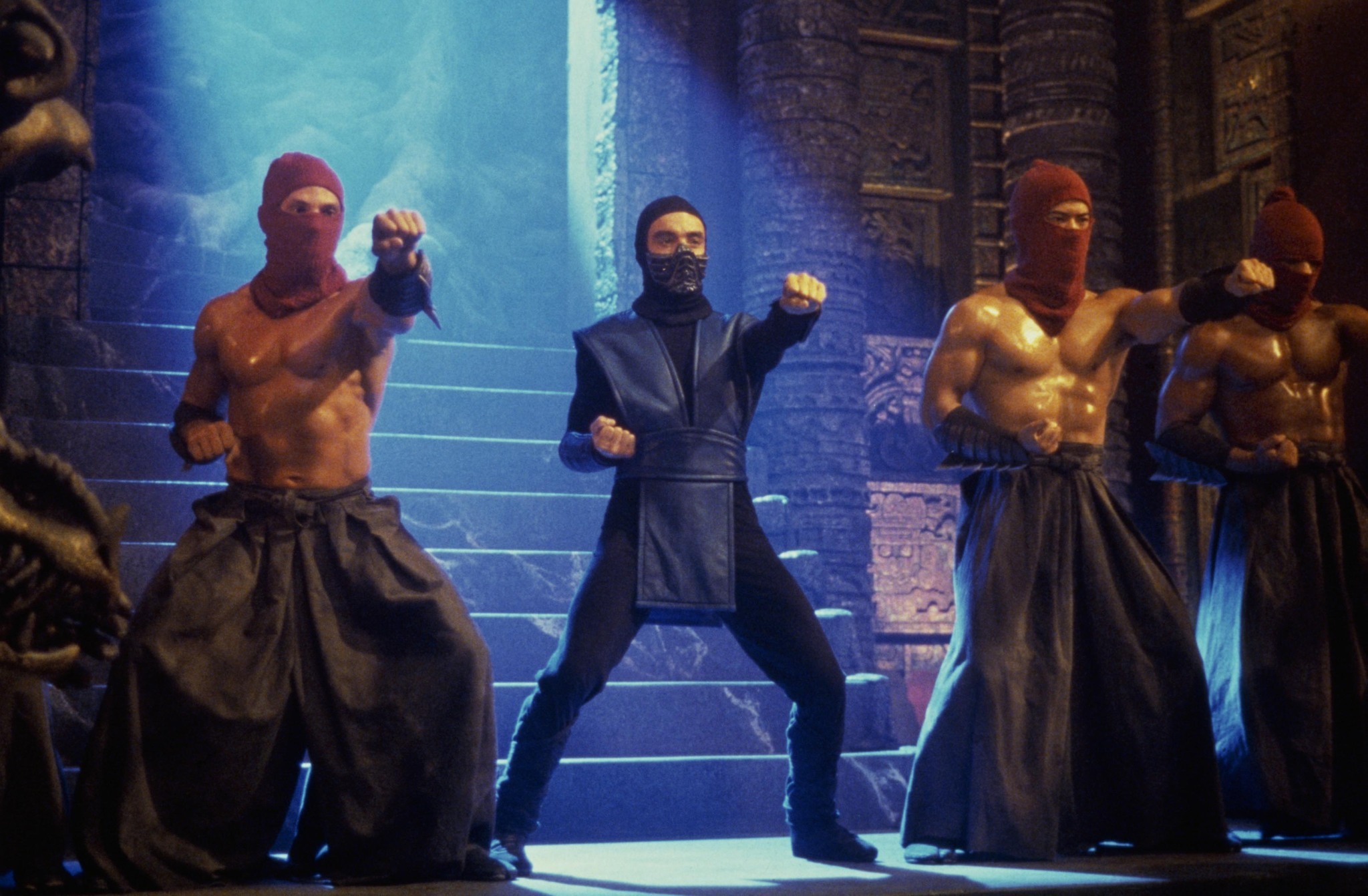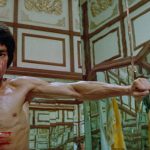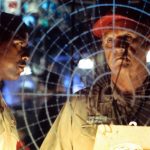Mortal Kombat (1995)

Released in 1995, “Mortal Kombat,” directed by Paul W.S. Anderson, stands as a seminal film in the genre of video game adaptations. Based on the highly successful and controversial arcade game of the same name, the film captures the essence of its source material while introducing it to a broader cinematic audience. Through its engaging narrative, dynamic action sequences, and memorable characters, “Mortal Kombat” has carved out a significant place in both the film and gaming worlds.
“Mortal Kombat” follows the story of three protagonists—Liu Kang (Robin Shou), Sonya Blade (Bridgette Wilson), and Johnny Cage (Linden Ashby)—who are summoned to participate in a martial arts tournament known as “Mortal Kombat.” This tournament is held to determine the fate of Earthrealm, a parallel dimension that is under threat from the sinister forces of the Outworld, led by the nefarious sorcerer Shang Tsung (Cary-Hiroyuki Tagawa) and the fearsome warrior Sub-Zero (Francis Ng).
The film opens with a prologue set in the ancient past, where a climactic duel sets the stage for the conflict. The narrative then shifts to the present day, where our heroes are brought together to compete in the tournament on a mysterious island, which serves as the battleground between the forces of good and evil.

One of the film’s strengths is its commitment to character development and faithful representation of beloved video game personas. Liu Kang, portrayed by Robin Shou, is the film’s central hero and a fighter with a deep sense of duty and personal vengeance. His character arc, involving a journey of self-discovery and mastery, reflects the classic hero’s journey trope. Shou’s performance is notable for its physicality and charisma, capturing the essence of Liu Kang as both a skilled warrior and a compassionate individual.
Sonya Blade, played by Bridgette Wilson, is portrayed as a determined and skilled Special Forces operative on a quest for revenge against the criminal Kano (James Remar). Her character adds a strong, independent female presence to the film, which was relatively rare in the genre at the time. Wilson’s portrayal is both tough and vulnerable, providing a balanced performance that adds depth to Sonya’s character.
Johnny Cage, played by Linden Ashby, brings comic relief and a touch of Hollywood flair to the ensemble. His character, a martial artist and movie star, initially seems out of place among the serious fighters but eventually earns his place through bravery and growth. Ashby’s

Visually, “Mortal Kombat” employs a mix of practical effects and early CGI to create its fantastical elements. The film’s set design and costumes are noteworthy for their attention to detail, bringing the game’s iconic characters and locations to life. The tournament arena, with its elaborate architecture and mystical atmosphere, is a highlight, effectively immersing viewers in the film’s world.
The action choreography, supervised by fight coordinator and martial arts expert Pat Johnson, is a standout element. The combat scenes are dynamic and well-executed, featuring a blend of traditional martial arts techniques and imaginative fight sequences that capture the spirit of the game. Despite some limitations in special effects technology of the time, the action remains engaging and true to the source material.
The film’s soundtrack, featuring the iconic theme by The Immortals, became a defining element of the “Mortal Kombat” franchise. The music, with its pulsating beats and electronic influences, perfectly complements the high-energy action and fantasy elements of the film. The soundtrack plays a crucial role in establishing the film’s tone and has since become a nostalgic favorite for fans of both the movie and the game.

Upon its release, “Mortal Kombat” was met with mixed critical reviews but was praised by fans for its adherence to the source material and its entertaining action sequences. The film’s success helped pave the way for other video game adaptations, establishing a template for how to translate interactive experiences into cinematic form. Its impact is evident in the subsequent films and media adaptations that followed, solidifying “Mortal Kombat” as a key player in the genre.
The film’s legacy endures through its influence on the video game adaptation genre and its continued popularity among fans. It remains a beloved piece of 90s cinema and a notable entry in the action and fantasy film genres.
“Mortal Kombat” (1995) stands out as a pioneering film that successfully brings the excitement and energy of the iconic video game to the big screen. With its engaging characters, dynamic action sequences, and memorable soundtrack, the film remains a significant cultural touchstone. Its influence on the genre and enduring fan base testify to its impact and success. As both a film and a piece of video game history, “Mortal Kombat” holds a special place in the hearts of audiences and continues to be celebrated for its contribution to the cinematic world of martial arts and fantasy.











